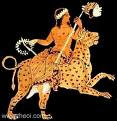So many times in the past I've gotten halfway through the script and closed it with grimace. But I've been revisiting Timon lately and have developed a new, if somewhat grudging, respect for it. Both Timon and Alcibiades, another major character, were actually historical figures. Timon was a philosopher noted for his misanthropy (Apemantus, a philosopher who appears in the play, foreshadows Timon's fall) and Alcibiades, another major character, was an Athenian military leader of rather mutuable patriotism. But it goes deeper than mere biography.
The play on one level is a depiction of Timon's fall from wealth and generosity to bitter, impoverished exile in the woods outside Athens. I initially found this storyline alienating so I had never really explored it in depth. Now as I review it, I see not just the objective process by which Timon lost his wealth but the thought processes as well.
On the esoteric level, I think Shakespeare was using the text of the play as a prosperity lesson. Timon behaves like a prosperity student gone horribly wrong. He starts out fine -- wealthy and generous, he shares all he has. But there are flaws and problems inherent in his thoughts -- he refuses repayment when it is due and expresses poverty thought throughout the beginning of the play. Toni Stone, my prosperity teacher, would point out that Timon is literally turning money away.
In prosperity training, we learn to manage our thoughts and words. In this light Timon's very words are suspect - to his friends he says:
"...more welcome are ye to my Fortunes
Than my fortunes are to me."
Later on he says to his friends,
"Why I have often wished myself poorer, that I might come nearer to you."
This is one of his fatal flaws -- he cannot be in relationship except when he is needed or when he needs. But deeper than that, he seems to wear his wealth with discomfort and there is an underlying anxiety to his generosity. This reflects in his words -- try as he may to manage his thoughts, saying, --
"...Never speake, nor thinke,
That Timon's fortunes 'mong his friends can sinke."
It's not even that his friends are untrustworthy, the problem is with his focus, it's way too narrow. He expects his generosity to come back from these very people, a score-keeping mentality, whereas in reality you never know where the answer will come from. This is where the problem frequently gets worse before it gets better, a process called "chemicalization" by Emilie Cady, a writer affiliated with Unity Church. Emilie Cady was a Christian theologian, but I find her ideas correspond well with any philosophy.
Chemicalization, as the prosperity teachers explain it, is actually part of the process, the problem working itself out, rather like a pimple that becomes bigger before it pops. This is the challenge, to stick to the action, thoughts and words that create value.
Timon, on the other hand, falls into poverty thought and vengeance. This is the fall from grace that destroys him. It's a complete and total loss of faith. He stages a mock-feast, raging against his former friends, then embraces a self-imposed exile. Before he leaves, he delivers a series of scathingly bitter curses outside the walls of Athens, full of imagery that disrupts the natural order.
Even when he finds gold later on, he's so destroyed that he cannot turn from his course of action. The gold he gives away to the enemies of his former home. Even in his misanthropy, he cannot keep anything for himself.
Timon has proven himself to be one of my deeper teachers. Even the "problem child" plays have something valuable to say.


No comments:
Post a Comment